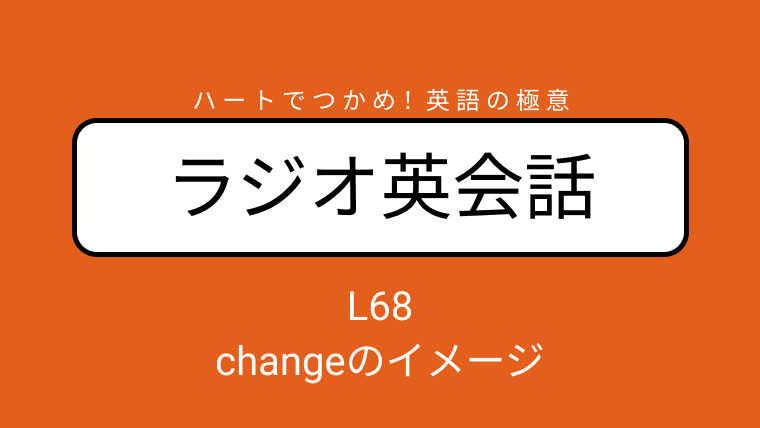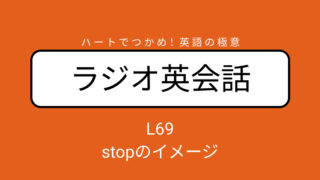NHKラジオ英会話のディクテーション「changeのイメージ」L68 2022/7/13

ディクテーション
講師陣の英会話を書きとり(スクリプト)
大西先生、クリスさん、ろーざさんの英会話部分を書きとってみましょう!(大西先生のギャグもできるだけ書きとります。)
Opening
Ohnishi: 何にもない、面白いことが何にもない。
ラジオ英会話、ハートでつかめ英語の極意、講師の大西泰斗です。
Roza: 先生、むしろいつものオープニングより面白かったんだけど。
Ohnishi: うるさい。
Roza: Hey everyone. This is Akino Roza.
Chris: Hi guys. Chris McVay here. I’m so jealous of your openings.
Ohnishi: それではさっそく始めていきましょう。
ダイアログ和訳の後 4:25
Roza: You know, what will make you even more popular than a cool suit and necktie? … Our textbook, of course.
Practice 10:20
Chris: OK, guys. Let’s practice this truly basic verb change. Chage is … change. Anything that transforms from one state to another. So, let’s begin.
Roza: And remember to change your thinking from Japanese to English.
Chris: So, here is the first example. Imagine … somebody in formal wear maybe for work, and now casual clothes the person is wearing, so we say, “He had changed into casual clothes.” Try?
Once more after me, “He had changed into casual clothes.”
Roza: Here are couple of very common phrases, “Things change.” “Times have changed.”
Chris: And common expressions, “change my opinion”, “change my outlook”, “change my mind”.
Roza: And a few more, “change my phone”, “change this for a new one”, “change yen into dollars”, “change rains”, “change buses”, “change planes”.
As I’m sure you can see, change is good.
Chris: Yeah, Roza, actually a lot of people are scared of change but look, no change … no butterflies.
Ending
Ohnishi: Hey Roza, you’ve changed a lot.
Roza: Ah, in what way? Oh, do you mean I’ve become more beautiful, or do you mean I’ve grown a lot …
Ohnishi: You’ve changed a lot.
Chris: Well Sensei, you haven’t changed a lot because you are always practicing.
Ohnishi: Yes, I practice hard, every day.
・・・・・
Ohnishi: というわけで今日はこの辺で。
All: Bye!
~ ディクテーションした内容やその解釈などに、聞き間違いや認識違いがある可能性はあります。ご了承ください


